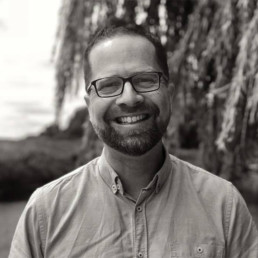
Written by Matthew Savage
Former international school Principal, proud father of two transgender adult children, Associate Consultant with LSC Education, and founder of #themonalisaeffect.
A few years ago, there was lots of talk about “random acts of kindness”, and many a school assembly took place across our schools, using that idea to encourage kind words and actions among and between staff and students.
However, I have since realised that kindness is never random. It is intentional. We make a conscious choice to be kind, or, conversely, not to be.
I reflected on this today, as a disabled, wheelchair traveller, treated like livestock at Madrid Airport: dumped in a corner and facing the wall, ignored, patronised and humiliated, and denied access to food, water or a bathroom, for 3 hours.
When finally pushed to the plane door, after every single able-bodied passenger and with minutes until take-off, I shared my experience so far, and then explained that I had mistakenly also been allocated a seat at the back of the plane, which I would not be able to reach without risk, pain, discomfort and delay, if at all.
I politely asked if the steward could request a passenger in a row further forward in Economy to swap with me, so as to avoid those things. They repeatedly, and emphatically, refused.
On hearing our conversation, a traveller in the very first Business row immediately stood up and insisted he swap with me and take my seat instead. The steward tried to persuade him not to do so, as he would lose his Business seat, but he made it quite clear that it did not matter, as my wellbeing and safety were more important.
I wish I could thank him properly. However, I suspect he would not mind. After all, when we intentionally choose kindness, we do so unconditionally and without expectation.
On the subsequent flight, I reflected further on this. In the leadership of our school communities, we also have the opportunity actively and intentionally to choose kindness, every single day – in our conversations and our actions; in policy and strategy; and in the decisions we make.
Sometimes this is easy, but when it feels difficult, we can and must still make that choice. We must ask ourselves what would be the kind thing to do. And then do that.
If kindness remains random, it will also be inequitably applied, and, in turn, perpetuate the marginalisation of those who need it most. Therefore, kindness should be at the heart of any #deij strategy too, and that strategy can help propagate intentional kindness as a result.
If we choose kindness, always, not only will kindness infuse the climate and culture of our schools, but others will follow our lead. Just like its absence, kindness cascades.
Does intentional kindness guide and permeate your school, or is it still random?

